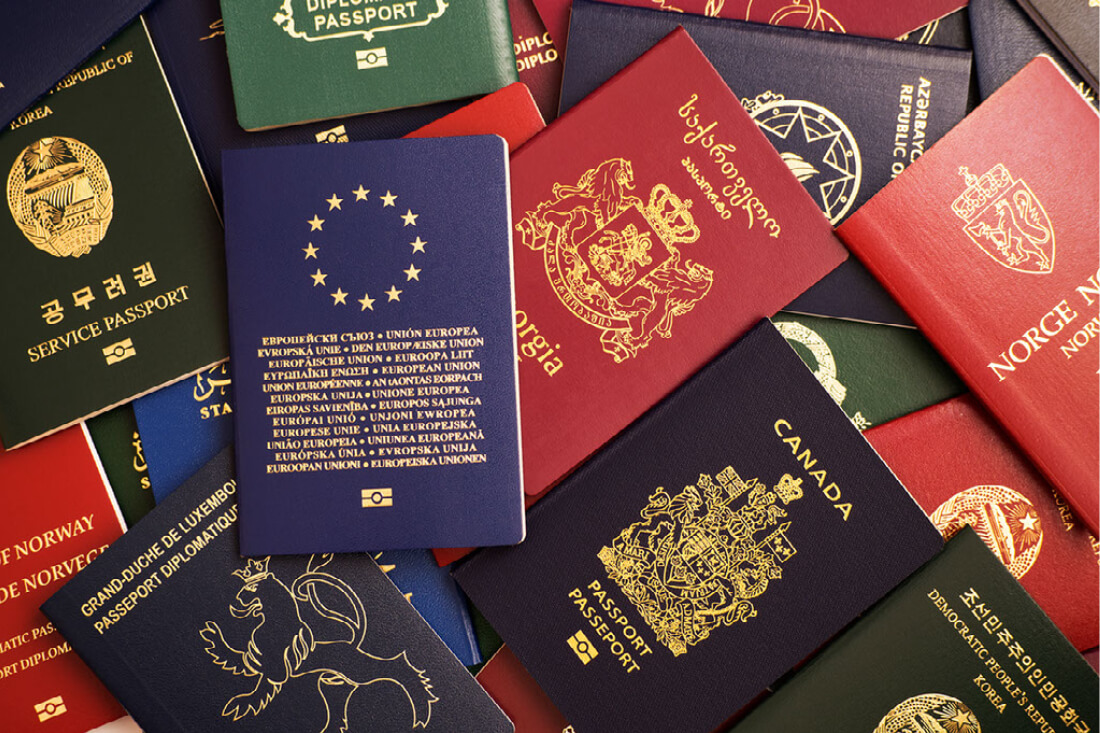Navigating the world with multiple passports can open many doors. As we explore the topic of Swiss dual citizenship, it’s essential to know the key facts. Swiss citizens can indeed hold dual citizenship without any restrictions. This information can be incredibly freeing for anyone looking to maintain connections with another country while being a Swiss national.
What does this mean for us? It means travel, work opportunities, and family connections can be simpler and more flexible across borders. Furthermore, the ability to belong to multiple cultures enriches our lives, offering a broader perspective on global issues and personal identity.
While dual citizenship offers many benefits, it also comes with specific responsibilities. For example, male Swiss citizens might still need to complete military or civilian service, regardless of additional citizenships. As we dive into the significance of these aspects, understanding how dual citizenship affects legal rights and obligations will be crucial.
Understanding Swiss Citizenship
Swiss citizenship is complex and fascinating. Switzerland allows dual citizenship, and acquiring it depends on several key laws and processes. Let’s explore the fundamentals and the paths one can take to become a Swiss citizen.
Fundamentals of Swiss Citizenship Law
Swiss citizenship law governs how people can become Swiss citizens. The Swiss Constitution and the Swiss Citizenship Act are two major documents defining these rules.
Swiss citizens can hold dual or multiple citizenships without any legal issues. This makes it unique among many countries. Swiss men, even those with dual citizenship, must perform military or civilian service, unless exempt. The citizenship law also considers factors like ties to the Swiss community and language proficiency as part of eligibility.
Citizenship by Descent
Becoming a Swiss citizen by descent is quite common. If at least one parent holds Swiss citizenship, their children typically have a right to it as well.
This right isn’t automatic for every generation; certain conditions apply. The children must meet legal and residency requirements to retain their citizenship. Sometimes, registration with Swiss authorities is necessary to maintain or claim it. Citizenship by descent ensures that Swiss connections remain strong, but it also demands involvement and knowledge of obligations.
Naturalisation Process
Naturalization is how foreign nationals can acquire Swiss citizenship. There are two types: ordinary and simplified. Ordinary naturalization involves living in Switzerland for at least ten years, with shorter timeframes if someone lived in the country during their childhood.
Applicants must demonstrate integration into Swiss culture, understand a national language, and respect public security and policies. Local, cantonal, and federal authorities all have a role in assessing an application. Waiting times and requirements may vary, but meeting these criteria is essential for success.
Simplified Naturalization
Simplified naturalization offers a faster path for certain applicants. This usually applies to spouses of Swiss citizens and children under particular conditions. A reduced residency period is often a key advantage.
For a spouse, being married to a Swiss citizen for at least six years and living in the country for a minimum of five years is typically needed. Competency in a national language and active participation in Swiss life are also required. This process is efficient yet thorough, ensuring genuine connections with the Swiss way of life.
Dual Citizenship in Switzerland
 Switzerland allows its citizens to hold dual nationality, which can offer both benefits and challenges. We will dive into the legal framework and examine the pros and cons that come with being a dual national in Switzerland.
Switzerland allows its citizens to hold dual nationality, which can offer both benefits and challenges. We will dive into the legal framework and examine the pros and cons that come with being a dual national in Switzerland.
Legal Framework for Dual Nationality
In Switzerland, the law permits holding more than one nationality. This means Swiss citizens can also become nationals of other countries without losing their Swiss citizenship. Our Swiss Citizenship Law operates on a triple citizenship level, which includes the Swiss Confederation, the canton, and the municipality. Each level has specific regulations, but none of these prevent dual citizenship.
Swiss citizens can freely apply for another nationality if the other country allows dual nationality, too. On the flip side, naturalized citizens in Switzerland can also retain their original nationality if their country allows it. For us, this legal setup creates flexibility, allowing people to maintain cultural and familial ties with multiple countries.
For those considering second citizenship options, consulting trusted experts in obtaining a second passport can be invaluable. Expert guidance can help navigate the complexities of acquiring dual nationality while ensuring compliance with all necessary legal requirements.
Advantages and Challenges of Dual Citizenship
Having dual citizenship in Switzerland brings several benefits. Dual nationals enjoy the rights and privileges of both countries, which can mean easier travel and more business opportunities. For us, social benefits and health care rights are often accessible in both countries, enhancing our quality of life.
However, dual citizenship isn’t without its challenges. Dual nationals may sometimes face complex tax obligations, needing to comply with tax laws of both countries. There can also be legal and bureaucratic hurdles, especially if the laws of the countries conflict. Navigating these challenges requires careful planning and a good understanding of international legal obligations.
Overcoming these challenges takes careful planning and a clear understanding of international legal requirements. A practical solution is obtaining a second citizenship in a country with simple tax rules and minimal paperwork. For instance, some of the best Caribbean citizenship by investment programs provide favorable options, making it easier to manage dual citizenship responsibilities.
For those considering second citizenship options beyond Switzerland, it’s worth exploring global investment pathways. For instance, individuals can understand Grenada’s path to a second passport through investment, providing an alternative avenue to dual citizenship.
Impact of Dual Citizenship on Civic Duties
As dual citizens, Swiss individuals may find their responsibilities spread across both Switzerland and the countries whose citizenship they hold. Important areas include military service requirements, obligations towards foreign states, and tax duties, especially concerning the IRS.
Military Service Requirements
Swiss dual citizens often juggle military service obligations. In Switzerland, military service is mandatory for adult males, meaning dual nationals must either complete their service or face penalties. However, some countries, like the United States, have voluntary service, which can create conflicting responsibilities.
Each country retains the right to compel its citizens to serve. Dual citizens should coordinate with Swiss authorities to confirm their obligations, especially if discrepancies between countries arise. Addressing these can prevent conflicts and ensure compliance with multiple jurisdictions.
Obligations Towards Foreign States
Holding dual citizenship means navigating commitments and loyalty to two nations. Dual nationals are sometimes required to fulfill specific duties outlined by foreign states. These may include civic responsibilities like voting or participating in community efforts.
Constraints can vary, with some countries demanding substantial involvement while others remain less strict. Balancing these duties with Swiss norms can be tricky. It’s crucial for us to understand the requirements and obligations expected by each state, ensuring respectful and lawful conduct across borders.
Tax Duties and the IRS
Taxation is a critical area of concern for dual citizens, significantly when involving the IRS. The United States taxes citizens based on worldwide income, impacting Swiss dual citizens who earn overseas. This results in potential double taxation unless treaties or tax credits exist.
Understanding tax duties in both countries is essential. The Swiss authorities provide guidance to mitigate confusion, but dual nationals must be proactive in managing their tax affairs. This coordination ensures that they remain compliant with both Swiss and foreign tax regulations.
Preserving and Losing Swiss Citizenship
Swiss citizenship comes with responsibilities and definitions that include maintaining or losing it under specific conditions. Let’s explore how Swiss citizens preserve their rights while living abroad and potential reasons for losing this status.
Maintaining Swiss Citizenship While Living Abroad
Living in another country has its perks and challenges, especially when it comes to maintaining Swiss citizenship. We need to ensure our rights and obligations are clear while living outside of Switzerland. Fortunately, Swiss laws allow citizens to keep their citizenship even when residing elsewhere.
To protect this right, we must register with Swiss authorities at the Swiss embassy or consulate. Keeping personal records updated with Swiss representations abroad helps maintain strong ties. Staying informed about changes in citizenship laws is essential to ensuring that we don’t inadvertently jeopardize our status.
Conditions Leading to the Loss of Citizenship
Swiss citizenship might be lost under specific conditions. Naturalization in another country, without prior acceptance of dual nationality, can lead to forfeiture. This involves voluntary acts that demonstrate the intent to abandon Swiss citizenship.
Engaging in actions detrimental to Swiss interests can also result in loss. Meanwhile, if we’re born overseas, with Swiss citizenship through descent, and we don’t register by age 22, we may lose our citizenship. Swiss authorities provide guidance and options for reinstating citizenship when possible. Always staying informed and connected to Swiss systems is crucial.
Integration and Support for Dual Nationals
 As dual nationals, Swiss citizens often experience unique opportunities and needs when integrating into society. In this section, we’ll explore how local initiatives aid them and examine the role Swiss authorities play in offering diplomatic support.
As dual nationals, Swiss citizens often experience unique opportunities and needs when integrating into society. In this section, we’ll explore how local initiatives aid them and examine the role Swiss authorities play in offering diplomatic support.
Integration Initiatives for Dual Citizens
In Switzerland, integration programs are designed to help dual citizens seamlessly merge into the social fabric. We see opportunities such as language classes, which are crucial for engaging in everyday life. Besides language support, community centers play a vital role. They offer events to bring people together, fostering a sense of belonging among dual citizens.
Local councils promote cultural exchange programs. These programs teach about Swiss customs and traditions, making newcomers feel welcome. For young dual nationals, schools offer specific support services. These services ensure both their educational needs and cultural backgrounds are respected.
Role of Swiss Authorities and Diplomatic Support
Swiss authorities play an active role in supporting dual nationals, providing them with consular protection. This means if challenges arise while abroad, Swiss diplomats are there to assist. Access to legal assistance is one way they ensure safety and security for us all.
Swiss embassies offer valuable resources, such as information sessions about rights and responsibilities. This helps dual nationals stay informed about their standing in both countries. Additionally, they coordinate with local governments to uphold military obligations. Dual citizens can meet obligations in their countries of origin without facing penalties, showcasing Switzerland’s commitment to supporting its citizens globally.
Conclusion
Dual citizenship for Swiss nationals provides incredible opportunities for travel, work, and maintaining strong international ties. While it comes with responsibilities, including tax considerations and potential military service, the benefits often outweigh the challenges. Whether you’re considering acquiring another nationality or preserving your Swiss citizenship, understanding the legal framework is key. Staying informed and proactive ensures you can navigate the complexities of dual citizenship with confidence.
Meta Description:
Discover everything Swiss citizens need to know about dual citizenship, including benefits, legal requirements, and responsibilities. Learn how to navigate the process effectively.


